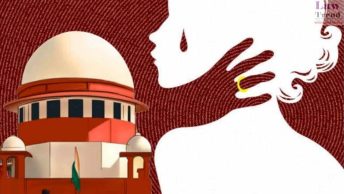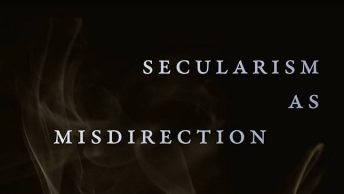I thank Pratap Bhanu Mehta for the following response to my previous post. I am also giving my brief reply to him -VV.
Dear Venkatesan,
I admire your thoughtful response on your blog. But I also think it shows what has gone wrong with our discourse on free speech. I just want to clarify a few points.
1. In a strict definitional sense, no one defends an “absolute” freedom. For example some versions of hate speech will need to be prohibited in any democracy. Certain kinds of violent pornography could also be regulated. Of course at one level, this will have to be determined on a case by case basis. The whole attribution that advocates of free speech are defending” absolute freedom is beside the point.
2. Much of the “advocacy” for raising the bar against regulating speech comes from the context. If you cannot write a book on Shivaji, or a Sahitya Akademi nominated novel is under legal threat, something is going wrong.
3. YOU attribute to me a position called “philistinism”. You are free to do so, but I am not sure how you can arrive at that judgment without knowing anything about my artistic or literary judgments. In so far as I have an aesthetic it is premised deeply on making qualitative distinctions. I worry that democratic discourse does not often make these distinctions. But it does not follow from that fact that these distinctions can be the basis for legal prohibitions of speech. But that is the point. Courts should try and avoid being arbiters of taste, as far as possible.
4. Most of the free speech cases involve offending religious sensibilities. And although Courts routinely make a distinction between criticism of religion and offensive criticism, they have blurred the lines in a way that even criticism becomes difficult. I can also say that from a religious point of view I am quite offended by several works of art, which are often gratuitous. But it does not follow from that fact that they should be banned. Ridiculing and Lampooning are legitimate modes of social criticism.
5. Courts should also as far as possible avoid giving authoritative interpretations of religion and get into hermeneutical controversy over interpretation of religious texts. They have no competence to do so. I chose to comment on Bhasin, because it is an example of how the Courts land themselves into a mess even when they are trying to do the right thing. Instead of focussing narrowly on clear and present danger, or on hate, they spend pages trying to defend a reading of Koranic texts. In other cases (NCERT) Courts have even gone to authoritatively pronounce that all religions are one. Their reading may well be right, but it is beside the point. People should be free to think that religions are violent or oppressive. And much of what Courts is in line with an ideology that Courts promulgate that nothing in any religious text in any religion can be really itself offensive.
6. I was also commenting on a political dynamic. India has routinely banned books. But the fact that it does so gives groups all kind of incentives to mobilise and create public disorder. Second, there is dimension of competitive communalism that free speech discourse has created. If Satanic Verses can be banned, why not Dharamkaarana? If books on Muhammad, why not on Krishna and Draupadi? We are becoming less, not more tolerant. And we should ask why? What is the function of law in producing this outcome?
7. It is not philistinism that drives one to be sceptical of restrictions. It is actually safety. A society where people’s taking offense does not lead to immediate legal intervention or intervention by the state will be safer for liberty in the long run. The reason you let a lot of “bad” speech pass, is because you have the assurance that if even that stuff can pass, your rights will not be curtailed. But a society which prohibits publication of Satanic Verses, James Laine, Hans Demobowski (the last two are OUP books) – where Court cases are/ can be routinely used to harass authors, where the state caves in when artistic exhibitions are vandalised, where movie directors have to face the wrath of mobs, does not make you feel safe. That is why the bar on regulating speech should be very very high. If anything it is those who want to regulate speech that are being philistine by not acknowledging the threat to art and scholarship we face.
My reply:
PBM is correct that I cannot call anyone philistine without knowing about their artistic or literary judgments. I used the term -for want of a better term- to express what I thought about the ongoing discourse. Therefore, I did not mean anything derogatory about any of the commentators, whose articles I have linked, including PBM. In fact, I respect their contributions to contemporary public discourse. I am happy PBM has taken pains to clarify – what would not have been possible within the space constraints of a newspaper article – some of the misgivings that I have had.






I think the line "Their reading may well be right, but it is beside the point. People should be free to think that religions are violent or oppressive" in point 5 perfectly captures the point.
The literature on this is legion but for a short and crisp analysis, Dworkin's article on the right to ridicule in a democracy in the NYRB after the Danish toon controversy is a piece I especially like: http://www.nybooks.com/articles/18811